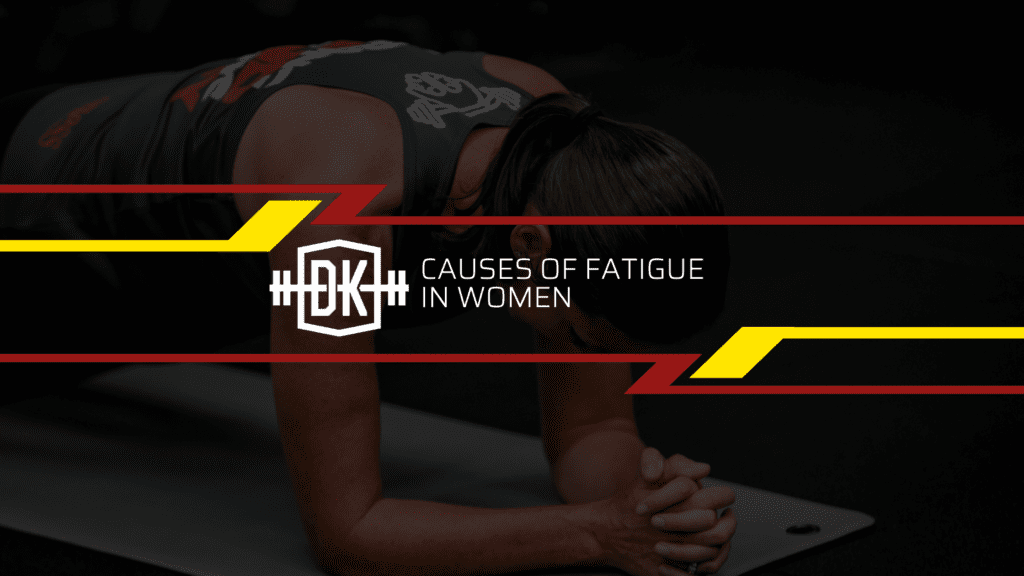Fatigue is a common problem for women. But it’s not just because of work, kids, housekeeping, or other responsibilities. It’s also due to hormonal changes that happen every month as well as the decline in estrogen during menopause – both of which can cause fatigue and other symptoms like sleep disturbances, headaches, and mood swings.
Fatigue can often be treated at home. If your fatigue is related to perimenopause or menopause – especially if it’s severe – talk to your doctor.
So let’s find out what causes fatigue and what we can do about it.
Factors that contribute to fatigue in women:
- Hormonal Changes: The hormonal changes are associated with menstruation, pregnancy, perimenopause, and menopause. The menstrual cycle is controlled by hormones like estrogen and progesterone – these levels vary during the month causing a woman’s periods to be lighter or heavier.
- Age: Fatigue can be a natural part of aging, caused by the decline in hormones that occurs with age. This includes the drop in progesterone, thyroid hormones (which regulate your metabolism), DHEA (a hormone produced by your adrenal glands), and testosterone (the “male” hormone). These changes contribute to fatigue, as well as decreased libido and function.
- Medical Problems: Fatigue is a common symptom of numerous medical problems – including hypothyroidism (underactive thyroid gland), heart disease, lung problems such as asthma, sleep apnea or other sleep disorders, depression, and diabetes.
- Lack of Sleep: Not getting enough sleep at night is a big cause of fatigue. Insomnia, which is difficulty falling or staying asleep is common in many women. Breathing problems, pain, restless leg syndrome, and other sleep disorders can also cause fatigue.
- Poor Nutrition: Diet plays a large role in how we feel – including our energy level. If you’re not eating well or getting enough nutrients from food, it’s going to affect your overall health and contribute to fatigue. Eating too few calories by taking on a restrictive diet plan may also lead to fatigue.
- Stress: Studies show that increased stress can contribute to fatigue. It suppresses the immune system, which affects your energy level and disease-fighting ability. It also increases inflammation, which is linked to heart disease and arthritis. Stress can also contribute to anxiety and depression – which may cause fatigue.
- Overdoing It: When women overdo it with physical activity or exercise without giving themselves enough time to recover from the stress on their bodies, they can become easily fatigued and rundown.
How women can deal with fatigue?
- Exercise regularly: Exercise helps your body to have more energy. You should exercise for at least 20 minutes every day. It increases your body’s oxygen levels, which makes you stronger. It also makes you feel stronger and lowers your blood pressure. Make sure to rest as needed.
- Pay attention to your body: It is important to take care of your body and note any changes. You need to make sure that you feel good and there is no reason for you not to be happy. This means taking care of yourself and making sure that if something hurts, you see a doctor.
- Get more sleep: The amount of sleep you can get is different for everyone, but it should be between 7 and 9 hours each night. If you’re having problems sleeping due to stress or lack of exercise, try taking a warm bath before bedtime.
- Nutrition: It is important to eat foods that help maintain energy levels and meet your nutritional needs so try including some of the following suggestions into your daily menu:
Carbohydrates – Carbohydrates give you energy. Simple carbohydrates break down quickly and are found in things like sugar, but complex carbohydrates take longer to digest and provide you with a slow release of energy. Healthy carbs can be found in whole grains, dried fruit, and vegetables.
Fats – Fats from foods such as avocado and nuts help regulate your cholesterol. Fats are also vital in helping your body absorb some nutrients; without them, those vitamins and minerals cannot be absorbed properly.
Protein – Proteins help your muscles contract and rebuild after exercise. Try to choose lean meats such as chicken or fish, which have low saturated fat levels, when planning your meals for the week.
- Drink lots of water: It is important to drink lots of water every day. Every part of your body needs it. If you’re not drinking enough water, it could lead to a lack of energy. Drink at least 8 glasses of water a day to stay properly hydrated.
Fatigue could be an early sign of many serious illnesses, so if you’re feeling tired all the time, don’t ignore it. It’s also important to remember that this symptom alone does not mean you have a disease and that with simple lifestyle changes, most people can experience relief from fatigue.


